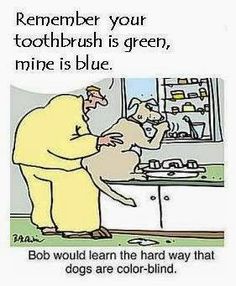Despite their tiny, sesame seed-like appearance, fleas (as well as ticks) can put a damper on any pet’s summer. Known to carry diseases, cause skin irritation, and spread rapidly throughout your home, any emerging flea or tick problem should be dealt with immediately. If you would like to learn more about the threat of fleas and ticks, refer to an earlier TVC post. Here, we will discuss various types of treatment that can keep your pet scratch free and healthy during the summer months.
Topical Medication
Topical flea medication covers a wide variety of treatments, such as “spot-ons”, sprays, powders, and dips.¹
“Spot-ons” are among the most popular and common methods of topical flea and tick prevention. They are typically applied directly to the skin between your pet’s shoulder blades or at the base of their neck. Over time, the medication spreads over your pet’s entire body, lodging itself into their hair follicles and gradually releases the active ingredient.² Because of this, “spot-ons” are also effective at preventing mosquitos (carriers of heartworm and other nasty diseases).
Flea sprays and powders are best used in between baths, as any leftover product will wash off when in contact with water.² They work by killing fleas on contact. Some can be used in tandem with other topical treatments, while others work over a period of time by killing flea eggs. Application of these products is typically simple but can lead to unwanted irritation and side effects for pets and the person applying the treatment.³
In some cases, a flea dip (a concentrated liquid) may be used. The flea dip is diluted with water and applied all over your pet’s skin.² The dip is not rinsed off and the pet should be allowed to air dry. It can be an effective form of treatment although this is not used as often as it has been in the past. Due to its high concentration it should not be used on young or nursing animals.²
Oral Medication
Oral tablets, chews, and pills protect your pet’s entire body by traveling through your pet’s bloodstream and up to the skin’s surface.¹ They are quick and effective at killing biting fleas and in some cases ticks. Flea pills are arguably the fastest way to eliminate fleas (some medications are reported to start working within a few hours), but many do require a prescription from your veterinarian. Side effects of these medications are usually quite tame and few in number (most typical being vomiting or diarrhea). There are a variety of treatments which also help prevent against heartworms in dogs and roundworms, hookworms, and other parasites in cats.²
Collars
Collars are more commonly used as preventative measures against parasites—though there are some which can help treat infestations. Collars are most effective at preventing ticks, as they are concentrated around your pet’s neck and head (areas on the body where ticks are mostly likely to latch on).¹ Some collars can be combined with other forms of flea and tick treatment to prevent future infestations while current ones are being eliminated. This is a cost-effective option for many pet owners but the smell can be quite strong and irritating to your pet.³
Sites Referenced
- Carey., Gina, et al. “Compare The 3 Types Of Flea And Tick Medication For Dogs.”PetCareRx, 8 May 2016, www.petcarerx.com/article/compare-the-3-types-of-flea-and-tick-medication-for-dogs/2790.
- “Seven Types of Flea & Tick Control Products.” PetMD, www.petmd.com/dog/slideshows/parasites/7-types-of-flea-tick-control-for-dogs.
- Donatelli., James. “Flea and Tick Prevention and Treatment Options.” PetCareRx, 26 Jan. 2016, www.petcarerx.com/article/flea-and-tick-prevention-and-treatment-options/94







